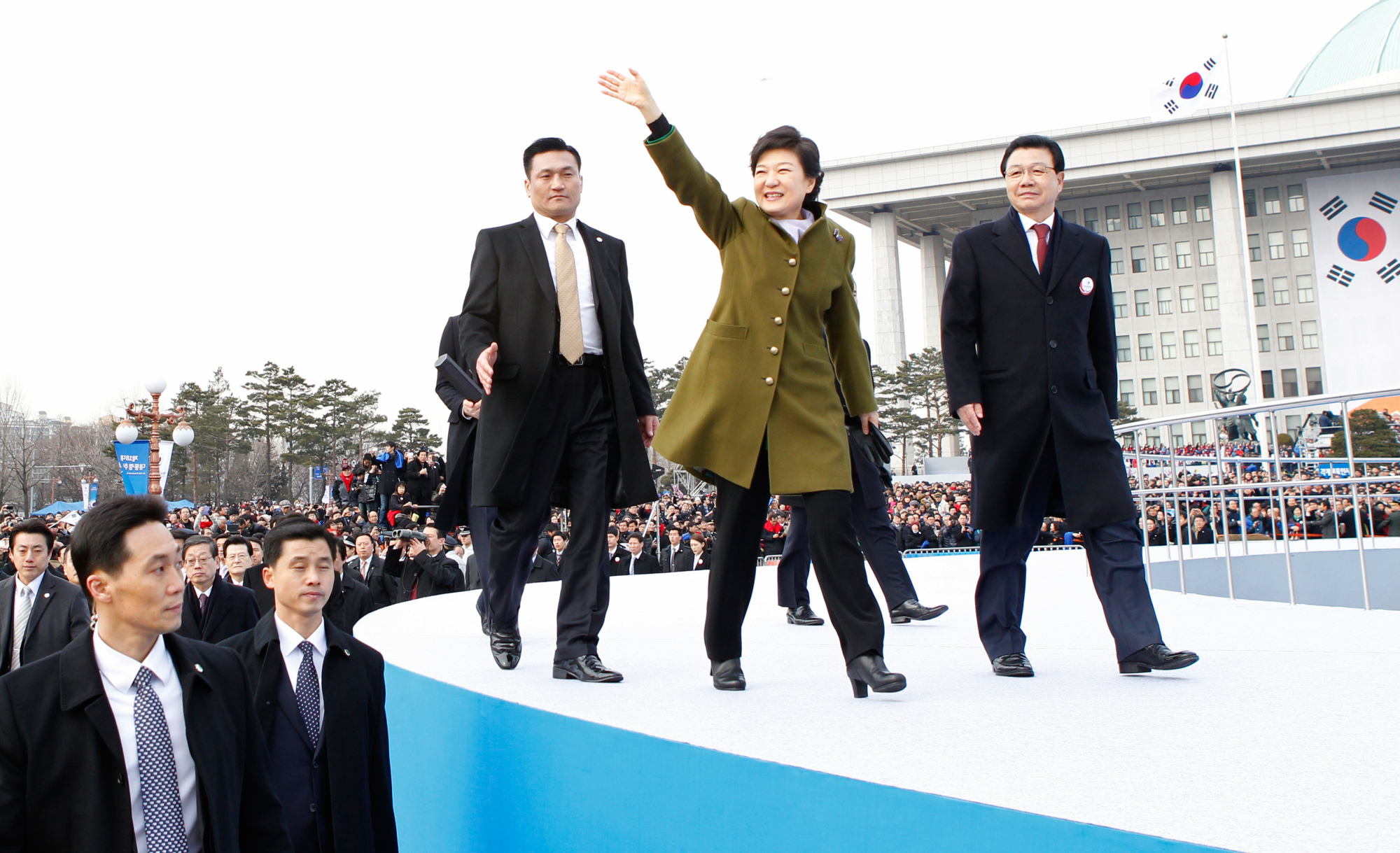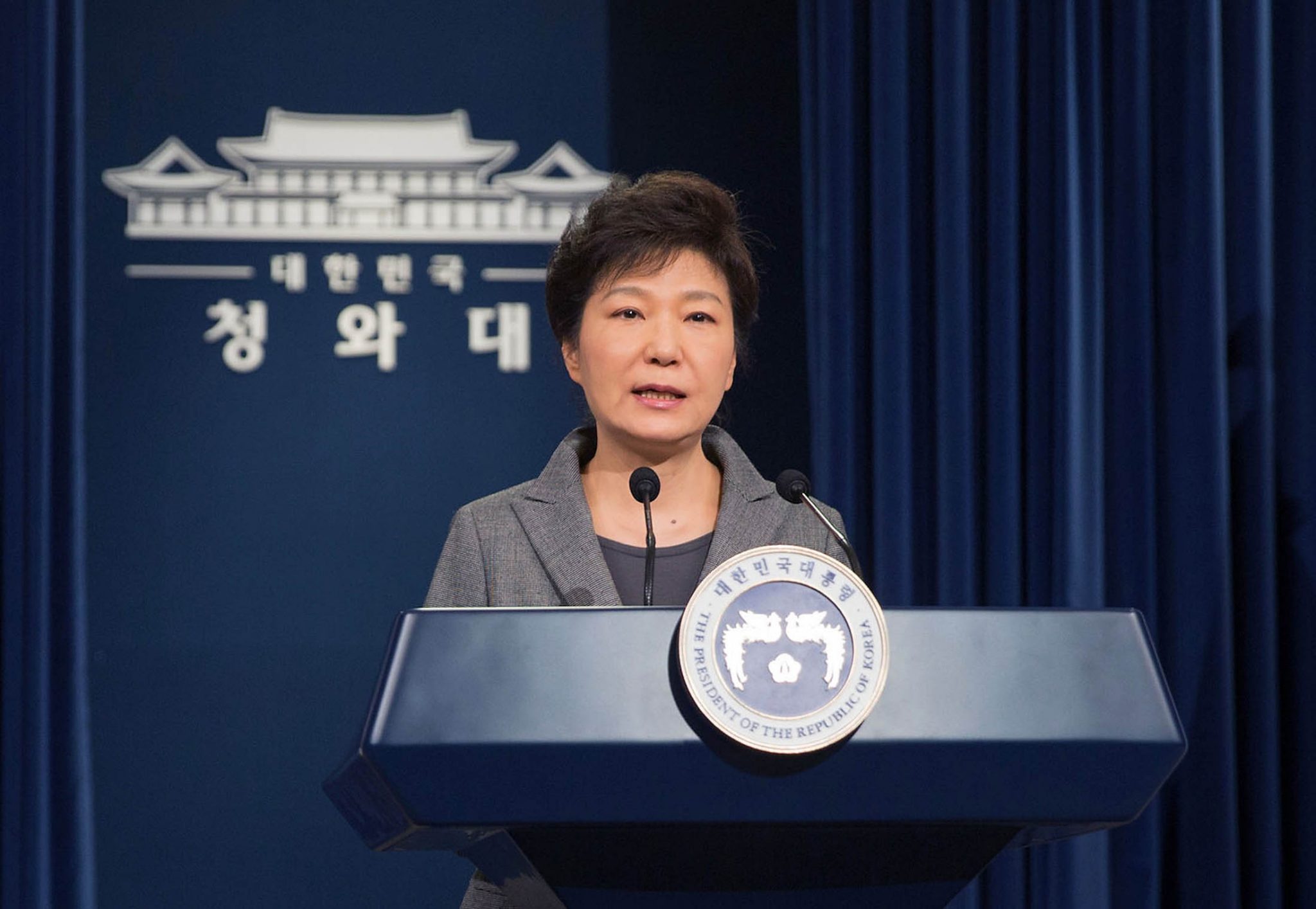
Women remain scarce in top posts and face large pay gaps
January 11, 2017: Back in 2013, South Korea’s Park Geun-hye smashed through the ultimate glass ceiling, giving women hope their first female president would lead to better gender equality in a deeply male-dominated society.
Her messy political downfall hasn’t exactly been a lean in moment for South Korean women.
Fast forward four years and you see few women in senior posts. While female employment edged up during Park’s term, about 40 percent of them are on temporary contracts. The income gap with male workers, meanwhile, actually widened during Park’s presidency and is the worst among OECD countries.
On top of that, her deep unpopularity — borne of an influence-peddling scandal that led members of her own party to want to oust her — has deepened stereotypes about women that linger in South Korean society. Park is accused of letting a friend, the daughter of a religious sect leader, exercise huge influence over state affairs, extort money from South Korean companies and even help the president choose her wardrobe.
Then there are the revelations that Park was attending to her looks during a national crisis, summoning a hair dresser to the presidential residence when the Sewol ferry was sinking in 2014. Park didn’t appear in public for hours after the disaster started unfolding and that lateness has been heavily criticized and was one reason for parliament’s impeachment vote last month.
Park has acknowledged that she saw a hair dresser during the ferry disaster but denies a litany of other allegations, including that she had cosmetic treatment while the Sewol sank. Park said her delay that day was due to a security issue. She’s also rejected the claims that her friend had extensive influence over state affairs.
The fallout for South Korean women may be lasting. “The scandal is the problem of an individual — President Park — but I’m worried her failings may be used as an excuse for not appointing women to higher posts,†said Kim Sang-kyung, who chairs the Korea Network of Women in Finance. “There were hopes that a female president may help break the glass ceiling in Korea, but I feel women’s empowerment has weakened,” she said.

Korea ranked 116th among 144 countries surveyed in the World Economic Forum’s annual Global Gender Gap Report in 2016, which measures differences in areas such as economic participation, educational attainment and political empowerment. Korea scored especially low in the number of women in ministerial posts and wage equality. In 2012, the year before Park took office, the country ranked 108th.
Government data on Wednesday showed the female employment rate was 50.2 percent in 2016. This is an improvement from 48.4 percent in 2012, but compares with 71.1 percent last year for men.
Placenta Injections

A government investigation into the influence-peddling scandal also revealed Park had been receiving injections containing human placenta extracts, which the presidential office said were used for medical, not cosmetic purposes. While Park said she was working “normally†on the day the Sewol ferry sank, local media have reported signs of so-called facial filler injections around the time the tragedy happened.
Park has been suspended from power while the constitutional court reviews the parliament’s impeachment motion. If the court approves this, a presidential election will be held by August at the latest. Potential candidates mentioned opinion polls are all men.
An important issue for the next president will be to think about how to incorporate women more effectively into the economy and to encourage more women in senior leadership, said Kent Boydston, a research analyst for Peterson Institute for International Economics in Washington.
Prejudice, Stereotype
Female organizations have voiced disappointment over how Park’s actions affected the perception of women. When Park’s lawyer asked for her “privacy as a woman†to be considered when requesting a delay in the prosecutors’ probe in November, the Korean Women’s Association United released a statement saying the remarks increased prejudice and stereotype against women, and urged the president be investigated. The lawyer didn’t specify what he meant by privacy.
Academic research shows that people have a difficult time associating women with leadership positions due to implicit bias against females, which is why they have to work so hard to win approval, said You Hye-young, assistant professor of political science at Vanderbilt University. The current scandal is likely to deepen people’s implicit bias about women in leadership because it throws attention on issues like cosmetic treatments and hair-trimming, You said.
There have been areas of development under Park. Her administration assigned a target ratio for female managers for public organizations, aiming for about 19 percent by this year, from around 16 percent in 2015. The administration has encouraged not only women, but also men, to take child care leave.
Still, the private sector remains a bastion of male entitlement. Only 2.3 percent of Korea’s 100-biggest companies’ executives were women as of 2015, data compiled by the gender ministry show, compared with 1.6 percent in 2013.
The government has seen improvement in its efforts to have the public sector take the lead in raising female representation in more senior roles, and will continue encouraging the private sector, the gender ministry said in an e-mail to Bloomberg News.
Encouraging more women to stay in the workforce is crucial for an economy that will see its workforce decline from this year. A silver lining is that with Korean female students exceeding men in the university entrance rate from 2009, the country will have a growing pool of potential female leaders.
“Women’s active participation helps expand the economic pie,†said Sohn Byoung-ok, the female chairman for Prudential Life Insurance in Seoul. “The latest political situation has had a not-so-positive impact on the perception of female leadership, but women should remain strong.â€






